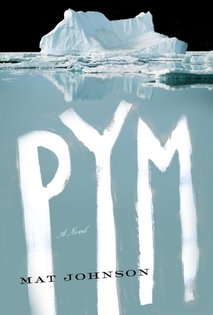
03 Mar 2011 05:34:53
Recently fired American literature professor Chris Jaynes is obsessed with Poe's only novel, "The Narrative of Arthur Gordon Pym of Nantucket." It's a strange tale of shipwrecks, mutiny and a mysterious island inhabited by black-skinned people whose teeth are even black, and it ends abruptly at the South Pole with Pym facing haunting white figures.
When Jaynes discovers a manuscript of a memoir that seems to confirm Poe's story and the location of the island, Tsalal, he sees it as the key to his redemption. To get back into a lecture hall, though, Jaynes must first go to Antarctica and find the current that carried Pym to Tsalal.
He assembles an all-black crew under the premise of converting centuries of frozen ice into the purest drinking water. Soon, though, they lose contact with the rest of the world. That's when the tall, white snow creatures emerge from the ice caves and make Jaynes and his crew their slaves. Luckily, the crew has a secret weapon: a stash of highly processed, sugary snack cakes.
A commentary on racial identity, obsessions and literature should not be as funny as "Pym," but Johnson makes light work of his heavy themes. Johnson's warped reframing of Poe's Pym narrative turns an obscure adventure story uncomfortably seeped in black-and-white imagery into an exploration of what horrifies Americans now.
When Jaynes discovers a manuscript of a memoir that seems to confirm Poe's story and the location of the island, Tsalal, he sees it as the key to his redemption. To get back into a lecture hall, though, Jaynes must first go to Antarctica and find the current that carried Pym to Tsalal.
He assembles an all-black crew under the premise of converting centuries of frozen ice into the purest drinking water. Soon, though, they lose contact with the rest of the world. That's when the tall, white snow creatures emerge from the ice caves and make Jaynes and his crew their slaves. Luckily, the crew has a secret weapon: a stash of highly processed, sugary snack cakes.
A commentary on racial identity, obsessions and literature should not be as funny as "Pym," but Johnson makes light work of his heavy themes. Johnson's warped reframing of Poe's Pym narrative turns an obscure adventure story uncomfortably seeped in black-and-white imagery into an exploration of what horrifies Americans now.

